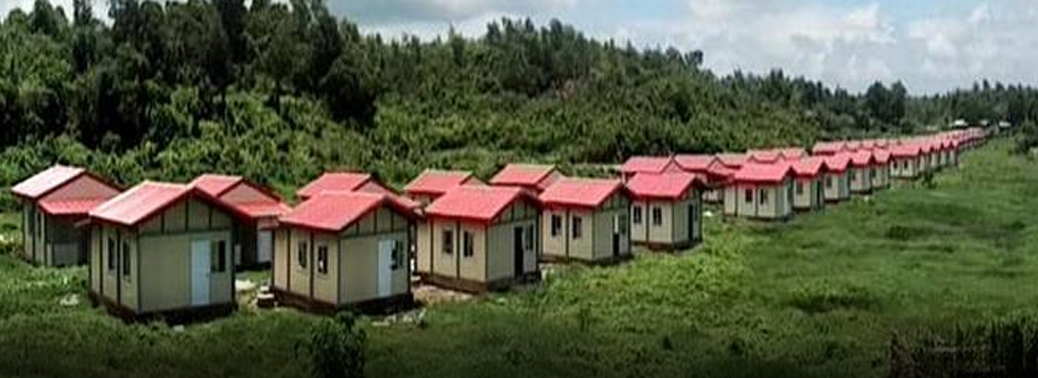INDIA BUILDS 250 HOMES IN MYANMAR TO ASSIST ROHINGYA
15, Jul 2019

Prelims level : International Relations- India and Myanmar
Mains level : GS-II India and its neighbourhood- relations
Why in News?
- Two years after more than 700,000 Rohingya fled to camps in Bangladesh alleging ethnic cleansing by Myanmar forces, the Indian government says it is stepping up efforts to help them return to their villages.
- Recently, India’s Ambassador to Myanmar, Saurabh Kumar handed over 250 completed pre-fabricated homes to the Myanmar government for use by the refugees when they return.
Part of 2017 pact:
- The project is part of an agreement signed by the two governments in 2017, under which the government had committed to spending $25 million over five years.
- The houses, measuring 40 square metres each, are designed to survive quakes and cyclonic storms. The 250 houses, built in three clusters, are in the Shwe Zar, Kyein Chaung Taung and Nan Thar Taung areas that saw some of the worst cases of violence, including mass murder, gang-rape of women and children and burning of thousands of homes.
- They have cost about ₹10 crore.
- However, there are no signs yet that the Rohingya will return at any specific date.
A Look at other developments:
- The Myanmar government has also handed over a list of 21 other projects that it wants India to fund as part of the agreement, including the construction of small villages, culverts and school buildings. It is important to note that hundreds of thousands of Rohingya, mostly Muslim, fled the violence that started after a local militant group ARSA attacked several Myanmar police posts in August 2017, killing about 12, and also Hindus in nearby Rakhine villages. In attacks on the Muslim Rohingya, termed ‘retaliatory’ by Myanmar’s Junta and the majority Buddhist community, thousands were killed. Nearly a million Rohingya, including about 400 Hindu families, are now living in precarious conditions.
International Concern:
- The government in NayPyiTaw still refuses to recognise the Rohingya as citizens and will not prosecute military personnel and civilians for the killings, which the United Nations officials said bore the hallmarks of genocide.
- In such a situation, several international refugee relief and human rights agencies have counselled against forcing the refugees to return to Myanmar.
- Making the situation worse are monsoon rains and flooding at the camps in Bangladesh that have already affected about 45,000 people since April 2019, even as international funding for the camps dwindles.
- Despite the desperate situation for them, there are no signs yet that the Rohingya refugees will return at any specific date, and officials could not confirm when they would actually occupy the houses being built by India and also by Japan, China and ASEAN countries for them.






